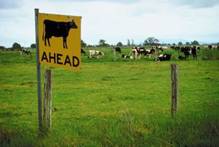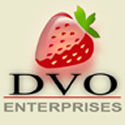
|
The Selling of "Organic"
by Alice Osborne
 Organic farms have historically been small, family-run businesses producing for local markets. But as conventional agribusiness and the supermarkets move in, organic shops are expanding, being bought up, and increasingly resembling their non-organic counterparts.
Under pressure by Wal-Mart, many multinational food corporations have developed organic versions of their best-selling brands, including Heinz, General Mills, Kellogg's, Groupe Danone, Nestle, Unilever Bestfoods, RHM, Mars/Masterfoods, Kraft, Premier Foods, Northern Foods and Pepsi-Co.
You can now get “organic” ketchup, rice crispies, and ready meals -- what started out as a method of producing healthy and nutritious food is now turning out highly industrialized multi-ingredient products.
These industrial organic foods are being marketed along with vitamin-enriched products and functional foods; in the eyes of General Mills, “organic is not a revolution so much as a market niche.”
We’re surprised at this development; it was bound to happen. How could any self-respecting, profit-driven, integrity-challenged food company ever let a swelling “market niche” go untapped?
That doesn’t mean you have to buy into their watered-down, kinda-sorta-organic-even-though-mass-processed versions of what could be real food, however. You still have the power to circumvent these con-jobs and demand the real deal.
It’s mainly a matter of knowing where to find locally harvested organic foods, buying from sources you want to see thrive, and reading packaged food labels like they’re the hottest thing from Oprah’s book club. The fact of the matter is, true organic IS better. Both for you and for the environment.
What is Organic?
To be labeled “certified organic” by the U.S. Department of Agriculture (USDA), the food must be free of most:
 Pesticides Pesticides
Synthetic fertilizers
Hormones
Antibiotics
Genetic modification
Irradiation
But many argue that true organic food also entails respect for locally produced food, respect for livestock and employees, and environmentally sustainable practices -- something that is rarely a goal of large-scale food manufacturers.
Now there is also "organic" food being imported from countries such as China, Sierra Leone and Brazil, where standards, wages, and growing conditions are difficult, if not impossible, to monitor and enforce.
This is one of the reasons why buying locally farmed organic produce is your best bet when making your shopping decisions. Here are some great resources to obtain wholesome food that supports not only you but also the environment:
 Alternative Farming Systems Information Center, Community Supported Agriculture (CSA) Alternative Farming Systems Information Center, Community Supported Agriculture (CSA)
 Farmers' Markets Farmers' Markets
A national listing of farmers' markets. Hopefully you’ll find one near you!
Weston A. Price Foundation
 The goal of the Weston A. Price Foundation is to restore nutrient-dense traditional foods to the human diet through education, research, and activism. In order to achieve their goal, the foundation supports accurate nutrition instruction, organic and biodynamic farming, pasture feeding of livestock, and community-supported farms. The goal of the Weston A. Price Foundation is to restore nutrient-dense traditional foods to the human diet through education, research, and activism. In order to achieve their goal, the foundation supports accurate nutrition instruction, organic and biodynamic farming, pasture feeding of livestock, and community-supported farms.
Local Harvest

This Web site will help you find farmers' markets, family farms, and other sources of sustainably grown food in your area, where you can buy produce, grass-fed meats, and many other goodies.
Eat Well Guide: Wholesome Food from Healthy Animals

The Eat Well Guide is a free online directory of sustainably raised meat, poultry, dairy, and eggs from farms, stores, restaurants, inns, and hotels, and online outlets in the United States and Canada.
FoodRoutes
 The FoodRoutes Find Good Food map can help you connect with local farmers so that you can find the freshest, tastiest food possible. On their interactive map, you can find a listing for local farmers, CSA's, and markets near you. The FoodRoutes Find Good Food map can help you connect with local farmers so that you can find the freshest, tastiest food possible. On their interactive map, you can find a listing for local farmers, CSA's, and markets near you.
Community Involved in Sustaining Agriculture (CISA)
 CISA is dedicated to sustaining agriculture and promoting the products of small farms. CISA is dedicated to sustaining agriculture and promoting the products of small farms.
Contribute to the Cook'n Club!
DVO would love to publish your article, prose, photography and art as well as your cooking, kitchen and nutrition tips, tricks and secrets. Visit the Newsletter Submission / Win Win for All section in our Forum for more information and details.
|
|



